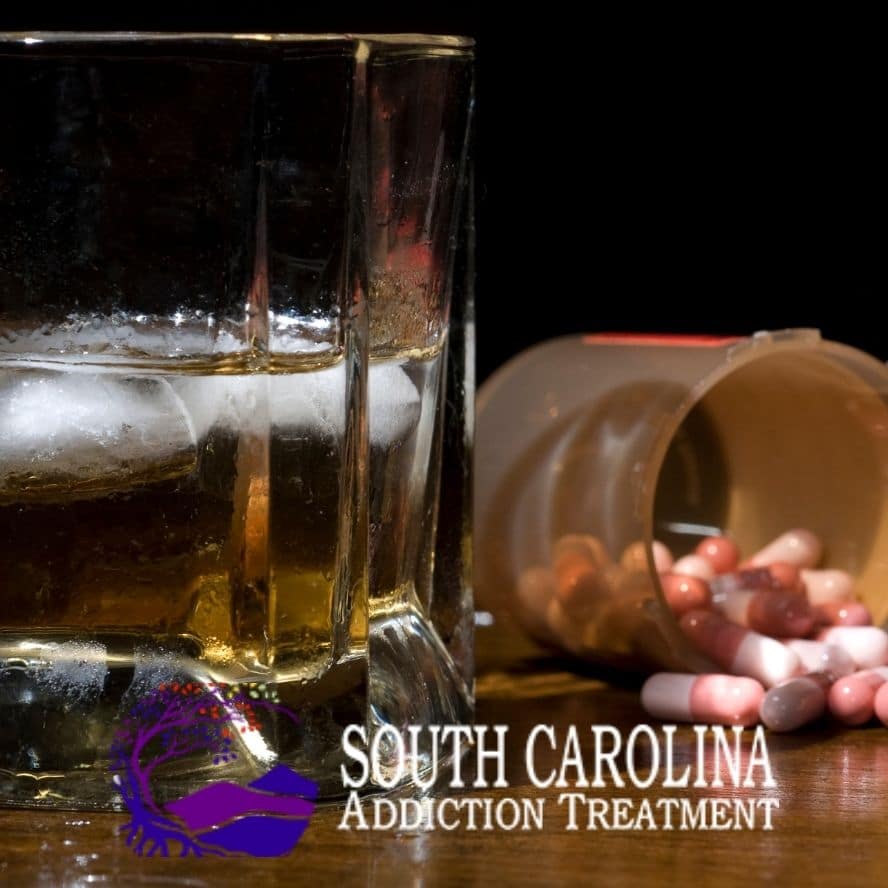Can You Mix Phentermine and Alcohol?

Medically Verified: 2/1/24
Medical Reviewer
Chief Editor

All of the information on this page has been reviewed and verified by a certified addiction professional.
Mixing two different substances is never a good idea, however, some substances are more dangerous to mix than others. While most people are aware of drug interactions, it is common for individuals to forget that drinking alcohol while taking a prescription medication poses many health risks. This is probably due to the concept of drinking alcohol being so normalized in our society. For instance, a lot of individuals may not think twice about having a couple of glasses of wine at the end of the day after taking their daily medications.
However, prescription medications like phentermine should never be taken with alcohol. This is because the combination of alcohol and phentermine puts people at risk of gastrointestinal issues, cardiovascular issues, and much more.
What Is Phentermine?
Phentermine is a stimulant medication that is prescribed for weight loss on a short-term basis. This drug is only prescribed to overweight individuals who have been exercising and eating healthily but need extra help promoting weight loss. Phentermine belongs to a class of drugs known as anorectics, which work by reducing an individual’s appetite and, consequently, limiting food intake.[1]
According to the National Library of Medicine, phentermine may cause the following side effects:[2]
- Dryness of the mouth
- Unpleasant taste
- Diarrhea
- Constipation
- Nausea or vomiting
The National Library of Medicine explains that the serious side effects of phentermine are rare. If an individual experiences the following side effects they should contact their doctor immediately:[2]
- An increase in blood pressure or heart palpitations
- Restlessness or tremors
- Dizziness
- Insomnia
- Chest pain or shortness of breath
- Swelling in the legs or ankles
- Difficulty performing exercises an individual routinely does
Because phentermine is a stimulant, individuals may become dependent on the drug if taken for a long period or in excess.
Is Phentermine Addictive?
As previously mentioned, phentermine is a stimulant drug. This means that there is a potential for abuse when phentermine is taken on a long-term basis or abused. Phentermine has been classified as a Schedule IV drug, meaning experts have acknowledged the medication’s high potential for abuse and addiction.
Because phentermine is addictive, it may produce symptoms of withdrawal when an individual stops taking the drug abruptly. Symptoms of phentermine withdrawal may include:
- Stomach disturbances such as nausea, vomiting, or diarrhea
- Cardiovascular issues such as stroke, heart attack, high blood pressure, or cardiac arrest
- Eye conditions like glaucoma
- Psychological issues such as depression or memory loss
Individuals who have become addicted to phentermine should attend a medical detox program to ensure physical and emotional safety throughout their withdrawal process.
Additionally, it is important to note that phentermine is not recommended to individuals with a history of substance abuse. This is particularly important for individuals who are addicted to alcohol, as mixing the two substances can cause detrimental effects.
Why Is Mixing Alcohol and Phentermine Dangerous?
Alcohol and phentermine are two substances that should never be taken together. Typically, when an individual is prescribed phentermine, their doctor explains that they should avoid alcohol throughout the course of their treatment.
One reason to avoid mixing alcohol and phentermine is the possibility of phentermine’s side effects being increased by alcohol. Side effects such as dry eyes, insomnia, and cardiovascular effects such as high blood pressure or heart palpitations are exasperated by the presence of alcohol in one’s system.
Risks for Obese Individuals
Phentermine is prescribed to individuals who are considered medically obese, meaning their BMI is over 30. Individuals suffering from obesity are already at an increased risk for cardiovascular diseases such as high blood pressure, heart attacks, or strokes.[3] When a person mixes phentermine with alcohol, this risk increases tenfold. In other words, obese individuals taking phentermine should refrain from drinking alcohol while taking the medication.
Additionally, individuals taking phentermine to lose weight should avoid drinking alcohol, as alcohol is known to cause weight gain. By combining alcohol and phentermine, individuals will see fewer results in their weight loss journey.
Polysubstance Abuse
Because phentermine and alcohol are both addictive substances, mixing them can cause issues with polysubstance abuse. Polysubstance abuse is described as an individual abusing more than one substance at a time, leading to multiple addictions and increased consequences of dependency. It is important to note that polysubstance abuse must be treated in a professional setting, such as residential or inpatient addiction treatment.
Overdose
Because mixing alcohol and phentermine only increases the risks of each drug, overdose is a risk. Phentermine is a stimulant, while alcohol is a depressant. This makes the combination of the two substances extremely dangerous, as the body is receiving mixed messages.
The symptoms of phentermine and alcohol overdose may include:
- Confusion or panic
- Nausea, vomiting, and diarrhea
- Depression or significant changes in mood
- An irregular heartbeat or weakened pulse
- Auditory or visual hallucinations
- Slowed or stopped breathing
- Seizures
- Coma or death
If an individual is experiencing the symptoms of a phentermine overdose, medical intervention is necessary.
Treatment for Phentermine and Alcohol Addiction in South Carolina
If you or a loved one is addicted to the combination of phentermine and alcohol, it’s time to seek professional help. Polysubstance abuse is a dangerous condition that must be tackled by an individualized and evidence-based approach to addiction treatment. Thankfully, South Carolina Addiction Treatment is experienced in the treatment of polysubstance abuse. Contact us today for more information on how to get started with our drug and alcohol treatment program in South Carolina.
References:

